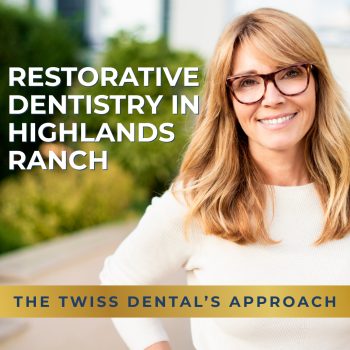The Importance of Regular Oral Cancer Screenings: Protect Your Health with Twiss Dental
 Oral cancer is a serious and potentially life-threatening condition that affects thousands of people each year. The good news is that regular oral cancer screenings can help detect early signs of the disease, increasing the chances of successful treatment. At Twiss Dental, we prioritize your health by offering comprehensive oral cancer screenings as part of our preventive care services. But why are these screenings so crucial, and what can you expect during the process? Let’s explore.
Oral cancer is a serious and potentially life-threatening condition that affects thousands of people each year. The good news is that regular oral cancer screenings can help detect early signs of the disease, increasing the chances of successful treatment. At Twiss Dental, we prioritize your health by offering comprehensive oral cancer screenings as part of our preventive care services. But why are these screenings so crucial, and what can you expect during the process? Let’s explore.
Why Oral Cancer Screenings are Crucial
Regular oral cancer screenings are essential for early detection and prevention. Like many other types of cancer, oral cancer is most treatable when caught in its early stages. Unfortunately, it often goes unnoticed until it has progressed, making it more challenging to treat.
Early Detection and Prevention
Early detection through regular screenings can be life-saving. When oral cancer is identified at an early stage, the chances of successful treatment are significantly higher. Regular screenings also allow your dentist to monitor any changes in your oral health over time, helping to catch potential issues before they develop into more severe problems.
What to Expect During an Oral Cancer Screening
Many people are unsure of what an oral cancer screening entails. At Twiss Dental, we make the process as straightforward and comfortable as possible.
Step-by-Step Process
- Visual Examination: The screening begins with a thorough visual examination of your mouth, including your lips, gums, tongue, cheeks, and the roof and floor of your mouth. Your dentist will look for any unusual sores, lumps, or discoloration.
- Physical Examination: Next, your dentist will gently feel your neck, jaw, and the inside of your mouth for any lumps or abnormalities.
- Additional Tests: In some cases, additional tests, such as a special light or dye, may be used to highlight any areas of concern.
This simple and non-invasive process can be completed quickly during your regular dental checkup, providing peace of mind and safeguarding your health.
Who Should Get Regular Oral Cancer Screenings?
Oral cancer screenings are recommended for everyone, but certain groups may be at higher risk and should be particularly vigilant.
High-Risk Groups and Recommendations
- Tobacco Users: Whether you smoke or use smokeless tobacco, your risk of developing oral cancer is significantly higher.
- Heavy Alcohol Consumers: Excessive alcohol consumption can increase the risk of oral cancer, especially when combined with tobacco use.
- Individuals with HPV: The human papillomavirus (HPV) is linked to a higher risk of oropharyngeal cancers, which affect the back of the mouth and throat.
- Age: People over the age of 40 are at greater risk, although oral cancer can occur at any age.
If you fall into any of these categories, it’s crucial to have regular oral cancer screenings. However, even if you don’t, regular screenings are a proactive step in maintaining your overall health.
Oral Cancer Screenings at Twiss Dental
At Twiss Dental, we take a comprehensive approach to oral cancer screenings, ensuring that every aspect of your oral health is thoroughly evaluated.
Our Comprehensive Screening Process
Our team is dedicated to providing high-quality care in a comfortable environment. We use the latest technology and techniques to conduct thorough screenings, giving you confidence in your health. Whether it’s your first screening or a routine checkup, our goal is to make the process as easy and comfortable as possible.
How to Schedule Your Oral Cancer Screening
Protecting your health starts with taking action. Regular screenings are a simple yet effective way to prevent serious health issues.
Take Action Today with Twiss Dental
Don’t wait until it’s too late—schedule your oral cancer screening with Twiss Dental today. Our friendly and knowledgeable team is here to guide you through the process and answer any questions you may have. Contact us to book your appointment and take a proactive step towards safeguarding your health.
Disclaimer: The content of this blog is not intended to be a substitute for professional medical advice, diagnosis, or treatment. Always seek the advice of qualified health providers with questions you may have regarding medical conditions.
